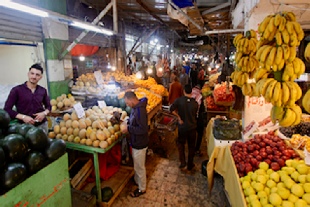
|
International conflicts and diplomatic standoffs often play out on supermarket shelves. Russia's invasion of Ukraine, for example, resulted in a worldwide shortage of sunflower oil, and now a European Court of Justice (ECJ) ruling on trade ties between the EU and Morocco will impact upon the labelling of fruit and vegetables. On 4 October, the ECJ ruled that trade agreements signed between Morocco and the EU in 2019 are invalid, because they also covered goods exported from Western Sahara without the permission of the region's Sahrawi people. At a meeting of EU agriculture ministers in Luxembourg on Monday, Spain's representative Luis Planas said that Madrid was "above" the ruling and that it wouldn't weaken the complex diplomatic ties that connect the Spanish and Moroccan governments. Rabat, which has claimed control of Western Sahara ever since Spain withdrew in 1975, accused the tribunal of "blatant political bias" and claims it made legal and factual errors in its judgement. But the Polisario Front, which seeks an independent state for the Sahrawi people, called it a "historic victory". As a result of the ECJ's ruling, fruit and vegetables produced in Western Sahara must now be labelled as such in supermarkets throughout the bloc. That might sound innocuous, but the new designation effectively reverses Spain's stance on north Africa's most contentious territorial dispute. Melons and tomatoes just became political weapons. |
|
|
The three- Cancelling decades of Spanish neutrality over the region, Sánchez declared in a letter
to Morocco's king Mohammed VI that Rabat's proposal - Morocco was delighted. But Algeria, which wants independence for Western Sahara along
with the Polisario Front, immediately severed its 20- Algeria finally reinstated an ambassador to Spain in April, but relations between the two countries remain tense. Sánchez shows no signs of reversing his reversal over Western Sahara, and reiterated his support of Moroccan claims over the region in February this year. To fully understand his north African ally's anger over the ECJ ruling, he need only imagine the following nightmare scenario: tomatoes on sale in Rabat with labels naming Catalonia, not Spain, as their country of origin. |


